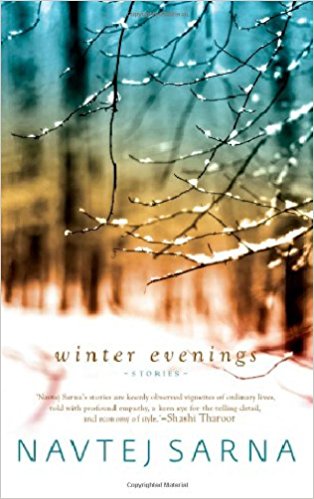It is a pleasure to hold a book of short stories, flip its pages and discover that each story is actually short, about 4-5 pages. So much has happened in the short story space in the last couple of decades that some read like mini novels while others like flash fiction. Navtej Sarna’s Winter Evenings takes the reader back to the age when short stories were short sans frills. In the good old tradition of short stories most of Sarna’s stories also fulfil the unities of time, action, and space. That is part of the reason they work.
Sarna is an economical writer, in both the subjects he chooses to write about and the way he writes. His stories are based on simple events like a meeting between friends, a phone call from a foreign land, a marriage proposal, a trip to a hill station or the chance discovery of a paint box. The simplicity of the themes is a reason to celebrate the book because the focus is once again on writing and how writing can create its moments. Many writers would seek bigger events to build their stories, believing that the import of the event has to be great but not this one.

